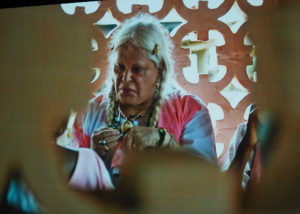Transitional and transformative states were at the heart of a diverse and rather dark program at this year’s CTM, running January 24 to February 2. Titled Liminal the Berlin festival focused on states of in-betweenness, a gap or a zone of transition—usually describing the place between the conscious and the unconscious. Responding to a generalized feeling of ambivalence and ongoing uncertainty in society, it sought to ‘go beyond’ the liminal to find a motor for change.
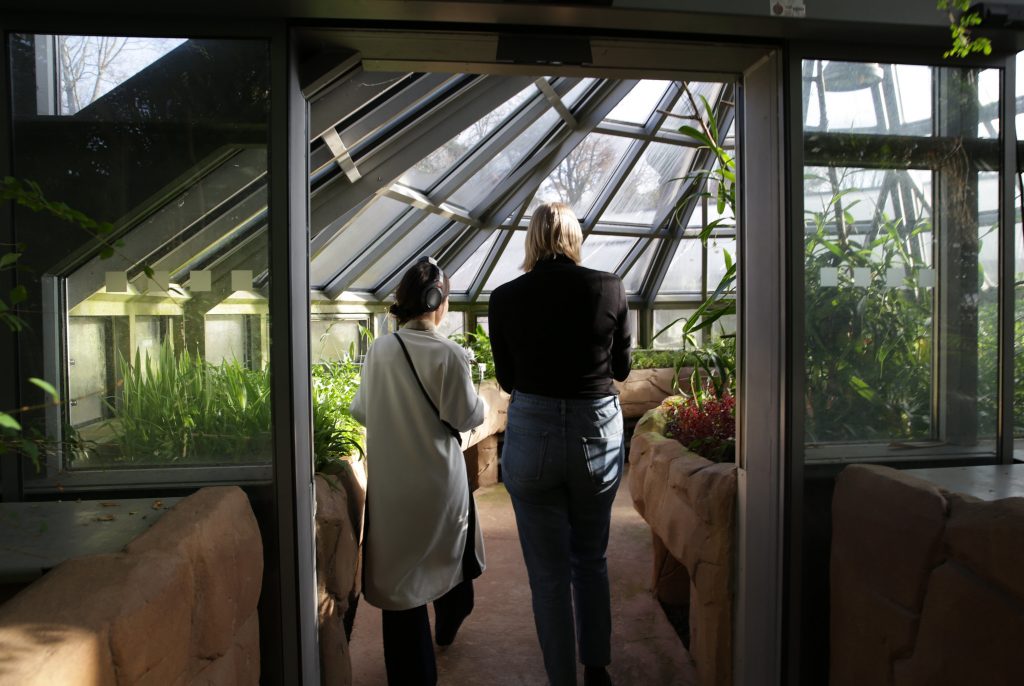
As such, a liminal space is the wiggle the room we have to challenge and subvert established norms and values. This was addressed in various ways in the festival’s program, with discourse and performances attending to altered states of consciousness and transcendence, as well as the lingering—and still dominating—structures of colonialism. This was particularly evident in Maria Thereza Alves and Lucrecia Dalt’s ‘You Will Go Away One Day But I Will Not’, a site-specific sound installation at Berlin Botanic Garden. Experienced through motion-sensor headphones, the piece existed invisibly in the headspace of the listener, seamlessly evolving with a layering of field recordings from the rainforest. Its animals and chants followed one’s own meanderings along the curved paths of the tropical greenhouse. The work focused on the notion of Western taxonomic nomenclature erasing indigenous names, addressing the ongoing dispossession of traditional cultures through language.
Partly a continuation of Alves’s longstanding practice focusing on plants, commerce, slavery and other colonial issues—particularly from the perspective of her native Brazil—‘You Will Go Away One Day… hinges on the artist’s relationship with indigenous Guarani teachers Maximino Rodrigues and Michely Vargas. The piece is composed of recordings of honouring songs and sacred chants corresponding to 26 species of plant in the greenhouse, also common to their native region near Jaguapiru Reservation in Dourados, Mato Grosso do Sul. For Alves, the work started when seeing the labels for Ctenanthe Burle Marx and Goethea strictiflora. The former was named after landscape architect and early ecologist of European descent Burle Marx of Brazil; the latter, after German writer and natural philosopher Johann Wolfgang von Goethe.
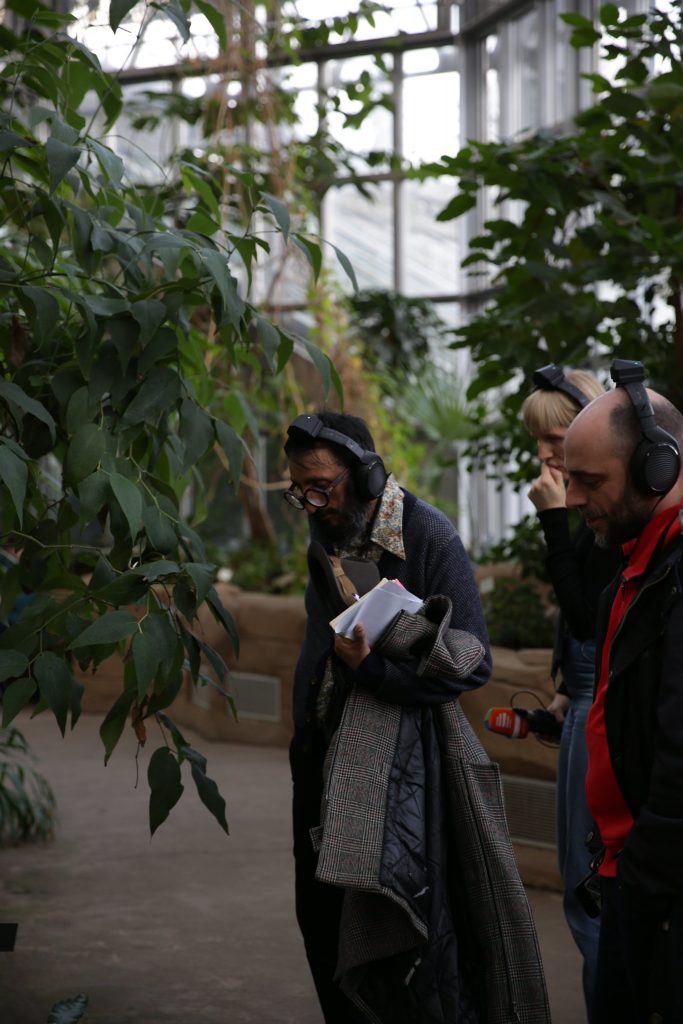
The sound is strategically layered, blending these environmental sounds with the electronic compositions and distortions familiar to Dalt’s own sonic territories and reminiscent of her 2018 release Anticlines release. The Berlin-based producer wrote via email that she preferred to avoid using her own field recordings of the rainforest for being ‘too representational’. This is critical because ‘You Will Go Away One Day…’ divests a didactical approach to a post-colonial perspective through rather abstract, constantly shifting sounds. As a listener, one could only distinguish samples and try to guess their origin through careful attunement, while the naming of plants themselves was obscured, unaccessible.
The piece is political on two levels. Firstly, via its own process-based approach centered on the discussion of the renaming of plants between the artists and the indigenous community, and by the simple fact that a disappearing language was made present within a colonial space. Secondly, by providing a durational engagement with sound and careful listening to open up a meditative space for reflection. The rhythms, textures and layers of ‘You Will Go Away One Day…’ made the listener curious for meaning. It slowed down engagement with a variety of ferns, trees and flowers, encouraging a renewed negotiation with the plants’ European labelling at one’s own pace. The strength of the work thus resided in both its methodology and the experience of an evolving and intricate composition, navigating a liminal position between resilience and resistance.
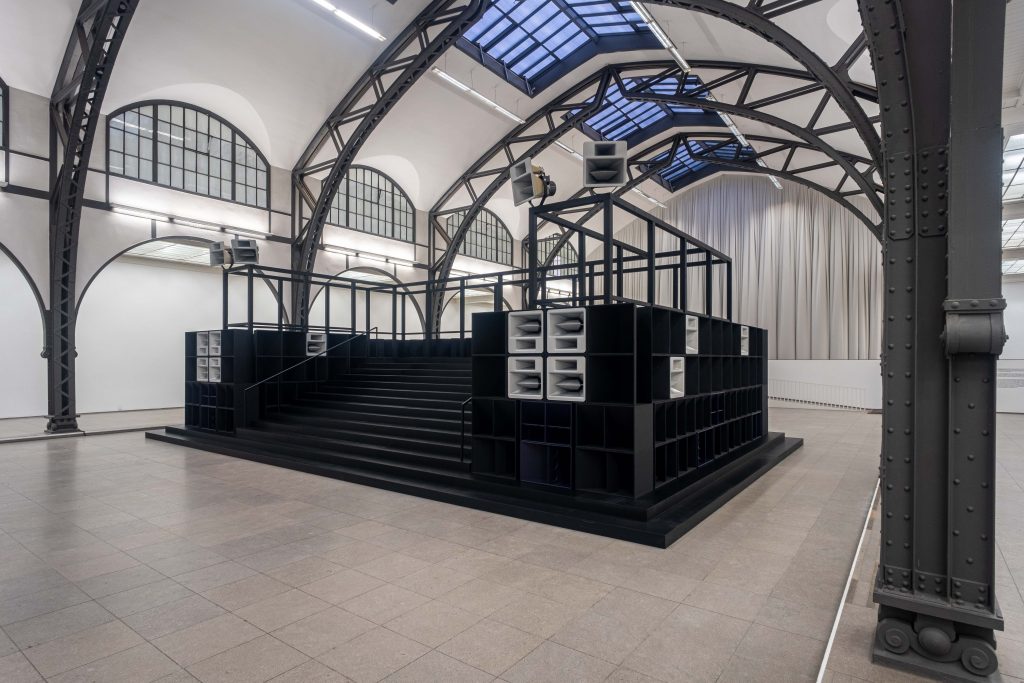
An architectural work by Cevdet Erek at the Hamburger Bahnhof was equally open, plural and ambiguous. Much like Alves and Dalt’s piece, ‘Bergama Stereo’ was a site-specific installation considering decolonisation through sound and listening. In the main space of the museum, Erek challenges the imperialist tradition of the collection by reinterpreting the Pergamon Altar. The famous Hellenistic edifice is known for its frieze in very high relief showing the struggle between the Giants and the Olympian gods in an epic battle of Ancient Greek mythology. It also happens to be a key piece in the Berlin Collection of Classical Antiquities, which has been out of sight since 2014 for renovations.
In distant resonance with ‘You Will Go Away One Day…’, ‘Bergama Stereo’ skilfully negotiates ideas of presence and absence in relation to cultural heritage with processes of control and ownership. Bergama is the present day name of Pergamon in Erek’s native Turkey. A reduced scale version of the altar is made with 34 active loudspeakers and empty enclosures that follow the fragmentary state of the monument. The spatialized and rhythmic sound piece gradually evolves, reminiscent of a large movement of people growing ‘en masse’, roaring and composed by the artist using a Middle Eastern davul drum among other instruments.
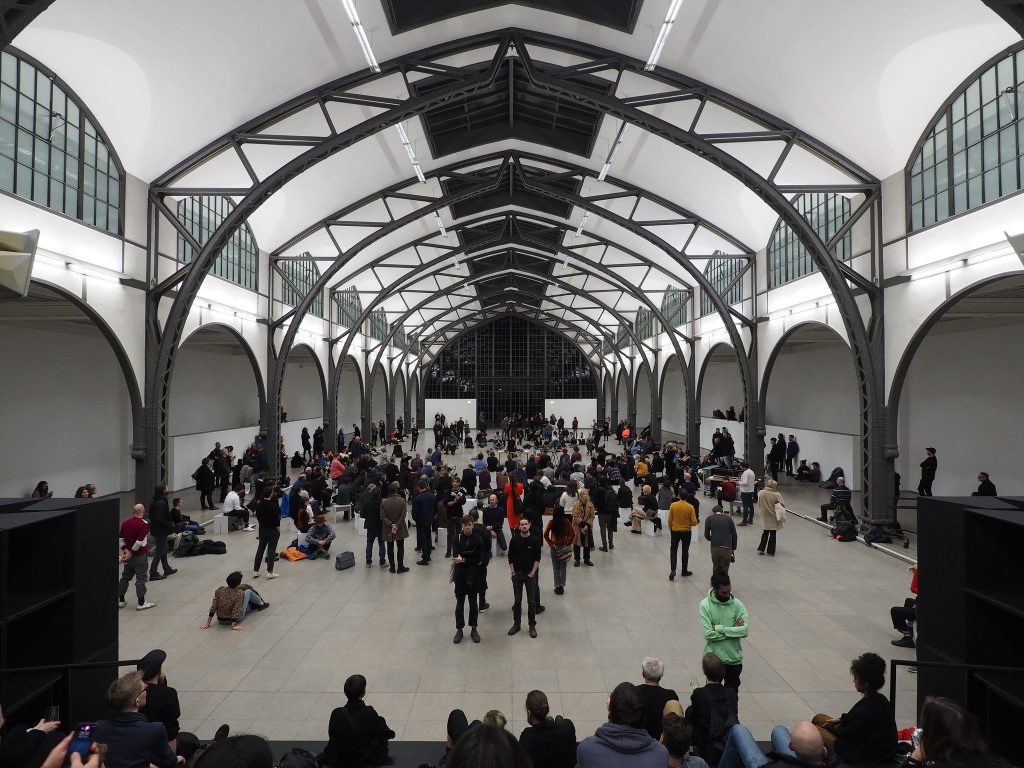
Visually, the speaker heads link the story of the frieze focused on rebellion with recent protest movements, such as the so-called Arab Spring and Berlin’s underground music culture simultaneously. Taking up a small portion of the Hamburger Bahnhof’s main hall, the work creates an important social space for audiences of the accompanying concert series, co-curated by the artist and the institution. The interconnection comes as yet another example of the liminality, that ‘in-betweenness’ in the form of cross-pollination; a realisation of a state of transition.
The full potential of the concept is achieved here in both sound installations through collaboration and improvisation, rather than a self-centred, boundary-pushing experience. The transformative potential of these liminal sonic experiences of postcoloniality is facilitated by the nature of sound itself, and held by the temporary communities it generates. Within the contemporary attention economy, in a culture dominated by screen content, this ‘coming-togetherness’ is a crucial spatiotemporal opening for encountering difference. But just like the sun rising on the horizon, the decolonising position of ‘You Will Go Away One Day But I Will Not’ and ‘Bergama Stereo’ seems just out of reach, growing slowly and steadily in the distance.**
CTM’s ‘Liminal’ festival was on across venues in Berlin, running January 24 to February 2, 2020.

